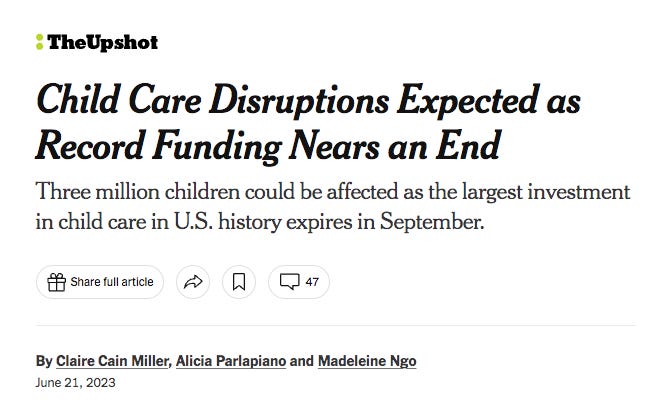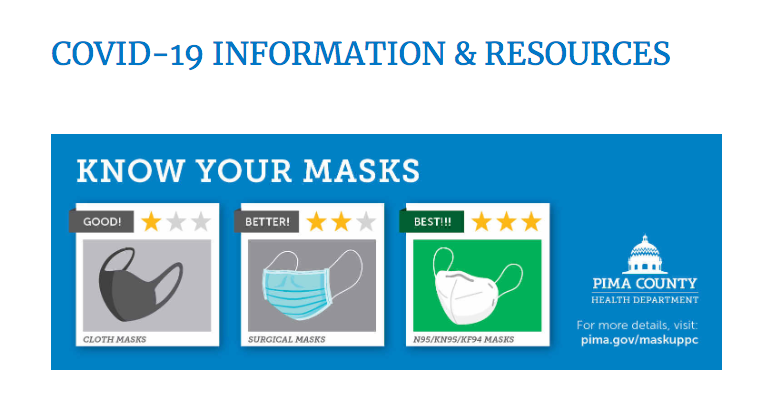The Daily Agenda: County writes wish list for Legislature
Please don't take our tax dollars ... Time for better gun laws ... Ballot boondoggle in Cochise County
Pima County officials are writing their annual wish list for the state Legislature, highlighting the local issues that’ll come up, or not, in the next legislative season.
Arizona’s 15 counties play a game of tug-of-war with the Legislature over tax dollars every year. The wish list Pima County officials put together, known as the 2024 Legislative Agenda, is one of the first official pulls of the game.
Pima County supervisors are going to vote on the 2024 Legislative agenda at their board meeting this morning. If they approve it, then they’ll send it to the County Supervisors Association to incorporate into its larger agenda. In October, the supervisors association will hold a summit and officials from the 15 counties will decide on a strategy for next year’s legislative session.
Legislators can, of course, ignore what counties want them to do next year. But don’t be surprised if a lot of the issues on the county’s wish list appear in news stories next year when lawmakers debate funding for roads, how to use federal dollars, or the state budget itself.
Looming over the upcoming game of tug-of-war will be the end of pandemic-related funding from the federal government and the fact that the Legislature cut funding for local programs after the great recession 15 years ago, but in many cases never returned it to pre-housing bubble levels.
County Administrator Jan Lesher and the department heads covered a lot of ground in the 70-page memo they sent to the board of supervisors. Here are some highlights.
Big-ticket items
The federal government provided millions of dollars to Arizona during the pandemic to help people avoid being evicted. That money is drying up, but the Legislature set aside $150 million for the Housing Trust Fund, and the county’s Community Workforce and Development Department wants to use some of that money for its emergency rental assistance program.
County officials also have their eyes on the gas tax and how legislators might tweak it to account for electric vehicles. Lawmakers are considering a mileage fee, weighing vehicles, raising the gas tax, or coming up with an entirely new system to raise money for roads. But they’ve been “considering” it for a long time. Whatever legislators decide, county officials want to make sure Pima County gets its fair share of revenue.
The county also wants the state to keep funding childcare (or start funding it, depending on how you look at it). State lawmakers drastically cut funding for childcare after the Great Recession and never restored it. During the pandemic, federal funds allowed the state to fully reimburse childcare. More than 5,000 kids under 5 years old in Pima County use subsidies for childcare.
Law enforcement
The Pima County Attorney’s Office is backing red flag laws that would allow judges to decide whether a person deemed to be dangerous can have access to firearms. The county attorney highlighted one such measure, HB 2184, that was proposed in the last legislative session by Democratic Rep. Jen Longdon, a gunshot survivor. Former Gov. Doug Ducey once backed red flag laws, but backed off his support after suffering blowback from his base.
The county attorney also wants the Legislature to raise the pay for lawyers in post-conviction capital cases. Right now, it’s $100 an hour, a rate that hasn’t changed since 1998. The county attorney says that’s “limiting the supply of practitioners in this field.”
Local issues
The head of the Pima Animal Care Center wants to use anti-predatory lending laws to crack down on companies that breed and sell pets. The county says these companies offer high-interest loans, but they aren’t yet subject to the interest rate caps under Arizona law. Many local elected officials are no fans of these companies, as PACC officials noted in the memo. The City of Tucson passed an ordinance in 2014 that required that all animals sold in pet stores be from a shelter or rescue group. Two years later, the state overrode the law.
Pima County Health Department officials are concerned about having enough authority to respond to health crises, saying the Legislature has limited limited the department’s power over the years. They also want to make it easier for people to get Naloxone, which can save lives during opioid overdoses, and allow pharmacists to prescribe medicine that protects against HIV infections.
Another item that caught our eye came from the county attorney’s office and deals with public records requests. The county attorney says the purpose of the proposed legislation is to “create boundaries around public records requests while maintaining a high level of transparency and accountability.”
From where we’re standing, it looks like they are trying to set up a system that would penalize people for requesting records and would price out all but the wealthiest requestors.
We’re waiting to see what the supervisors say at the meeting today. We’ll have some thoughts on that for tomorrow’s edition.
As for the rest of the county’s wish list, the legislative session is still a long way off, but many of the county’s asks are very long-standing issues. We’re looking forward to seeing if county officials can make any headway or if we’ll be back in the same spot this time next year.
Better 30 years than never: The EPA announced last week that drinking water for a small Tohono O’odham village near the Slate Mountains will finally be cleaned of a dozen decades of copper mining pollution, the Tucson Sentinel’s Daniel Shailer reports. But it won’t be an inexpensive or quick process, with the project to clean up uranium and perchlorate set to cost $126 million and take 30 years, with another 20 years of monitoring to follow. The EPA doesn’t expect the water to be drinkable for at least another 30 years.
Ballot boondoggle: A $1 million state-funded project to test anti-counterfeit measures on ballots appears to have been designed for one specific company that’s spent the last two years pushing the idea, Votebeat’s Jen Fifield reports. Cochise County supervisors are set to vote today on contracts with two companies that will test ballots with features such as watermarks, invisible ink and text and unique dyes leading up to the 2024 presidential election. But, not everyone has confidence in the project, with Arizona’s director of the voter advocacy group All Voting is Local calling the endeavor a “boondoggle.”
“It’s designed specifically to benefit this particular company, and it’s solving a problem that does not exist,” Alex Gulotta said. While Arizona’s failed GOP candidates and leaders have claimed thousands of fake ballots were inserted into Arizona’s 2020 and 2022 elections, courts have found no evidence of any.
Taking it to the airwaves: Pima County Administrator Jan Lesher was a guest on the Bill Buckmaster Show, talking about Pima County’s plans for a massive internet infrastructure upgrade, raises for county employees, the county’s plan to ask the legislature to change the state’s public record laws and more.
“That is one of the recommendations that came to us from the county attorney’s office to look at how we might make sure that if there’s personnel records, if there’s documents, how can we take care of those items,” Lesher said. “Trying to see what avenues there might be to ensure protection of someone’s personnel rights or something relating to their personnel records, that’s been a concern.”
We love public records-based reporting, but if the Legislature changes the law, we’re going to need a bigger budget to purchase records. And we’re still just trying to raise money for salaries!
Volunteers wanted: Tucson Meet Yourself is recruiting volunteers for its 50th anniversary celebration this fall. Each year, the festival sees more than 150,00 attendees come out for the free, three-day community event featuring hundreds of artists, home cooks, dancers, musicians and special exhibits from Southern Arizona and Northern Mexico’s ethnic and folk communities. Volunteers will be provided with a food voucher to use at vendor booths and a free T-shirt in exchange for their time. Details about the shifts and registration can be found at tucsonmeetyourself.org/volunteer-registration/
Access denied: Patagonia residents living along Blue Haven Road are facing an additional challenge this monsoon season, with their long-established emergency road across private properties having been blocked by the new property owner, Patagonia Regional Times’ Marion Vendituoli reports. The road has long enabled residents to avoid the Sonoita Creek wash when it floods, but the new owner posted a sign saying that “all high-water access” is being decommissioned and that residents should “please make plans accordingly for the 2023 monsoon season and beyond.”
“People are pretty upset,” area resident Cholla Duir said. “Nobody feels that this is normal behavior for a small town. Somebody’s going to get hurt or killed crossing the creek.”
65: The number of new subscribers that have signed up for the Tucson Agenda since Friday’s one-month update. Thanks for sharing us with your friends and family. Please keep doing that!









